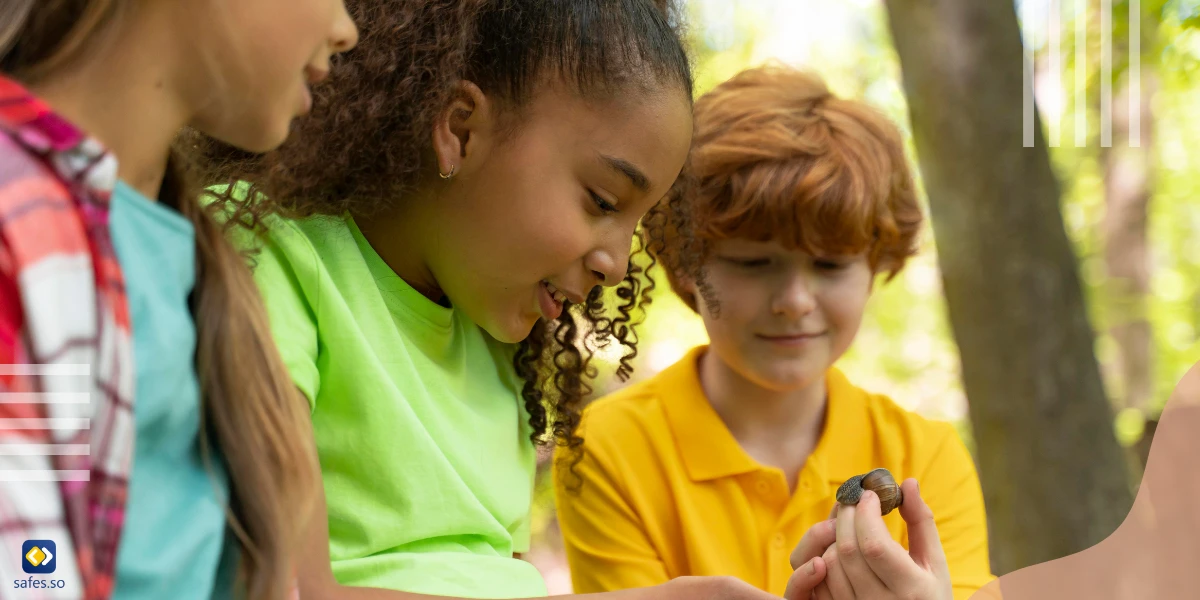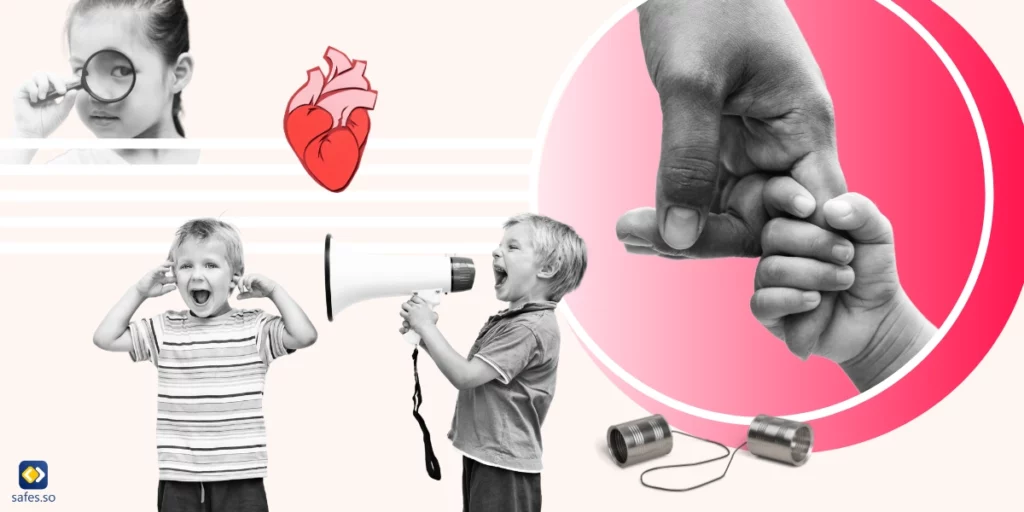Child social development is an essential aspect of a child’s growth and well-being. It refers to a child’s ability to interact with others, form relationships, and communicate effectively. As parents, it’s crucial to understand the importance of child social development and how it can affect your child’s future success. A child with healthy social skills is more likely to have positive relationships, better academic performance, and a higher level of happiness and fulfillment in life. In this blog post, we’ll provide a roadmap to help you understand the different stages of child social development and how you can support your child’s social growth.
Download and Start Your Free Trial of the Safes Parental Control App
Stages of Social Development
Social development in early childhood to adulthood involves several stages that are critical to a person’s well-being. Here they are:
- Infancy (0-2 years): During this stage, babies start to form attachments and develop trust in their caregivers. They begin to communicate through crying, facial expressions, and body language.
- Early Childhood (2-6 years): This stage is characterized by an increase in social interaction with peers and adults outside of the family. During social development in preschoolers, children learn to share, take turns, and cooperate with others. They also begin to understand and follow social norms and rules.
- Middle Childhood (6-12 years): At this stage, children become more independent and start to form their own identities. They develop more complex social skills, such as empathy, self-control, and conflict resolution. They also start to form close friendships and may experience bullying or exclusion.
- Adolescence (12-18 years): During this stage, teenagers focus more on developing intimate relationships and exploring their identity. They may experience increased peer pressure and social anxiety, but also develop a greater sense of empathy and social awareness. They start to establish their values and beliefs and become more involved in social and political issues.

Social Development Milestones
Social development in childhood is essential for a child’s growth and well-being. It involves several milestones that help children develop healthy social skills and relationships.
- Physical and Social Milestones for Infants: Infants develop trust and attachment to their caregivers, start to communicate through crying, facial expressions, and body language, and begin to show interest in other people.
- Emotional and Social Milestones for Early Childhood: Children develop empathy, learn to share and take turns, start to understand and follow social norms and rules, and form close friendships with peers.
- Cognitive and Social Milestones for Middle Childhood: Children become more independent and start to form their own identities, develop more complex social skills such as conflict resolution and self-control, and become more aware of social and cultural differences.
- Identity and Social Milestones for Adolescence: Teenagers focus on developing intimate relationships, explore their identity, establish their values and beliefs, become more involved in social and political issues, and experience increased peer pressure and social anxiety. They also develop a greater sense of empathy and social awareness.
Factors that Influence Social Development
Emotional and social development in children is influenced by various factors, including:
- Family and Home Environment: The family and home environment play a crucial role in a child’s emotional and social development. Children who grow up in a safe, supportive, and nurturing environment are more likely to develop healthy social skills and relationships. On the other hand, children who experience neglect, abuse, or conflict at home may struggle with emotional regulation, trust issues, and social anxiety.
- Peers and Social Interactions: Peers and social interactions are essential for a child’s emotional and social development. Positive interactions with peers can help children develop empathy, cooperation, and conflict resolution skills. Negative interactions, such as bullying or exclusion, can have a detrimental effect on a child’s self-esteem and social skills.
- Culture and Society: Culture and society also play a significant role in a child’s emotional and social development. Different cultures have different social norms and values, which can influence a child’s behavior and social interactions. Society also shapes children’s perceptions of gender roles, social class, and diversity, which can impact their emotional and social development.

Tips for Supporting Child Social Development
Child social development can be fostered and supported by implementing the following tips:
- Positive Reinforcement and Encouragement: Children thrive on positive reinforcement and encouragement. Praising children for their social skills, good behavior, and positive interactions with peers can boost their self-esteem and motivate them to continue developing healthy social skills.
- Building Social Skills: Parents and caregivers can help children build social skills by providing opportunities for social interactions, such as playdates, group activities, and team sports. Parents can also teach children social skills such as listening, sharing, taking turns, and showing empathy.
- Creating a Safe and Nurturing Environment: Children who grow up in a safe and nurturing environment are more likely to develop healthy social skills and relationships. Parents can create a safe and nurturing environment by providing emotional support, setting clear boundaries, and modeling positive social behaviors.
- Encouraging Diversity and Acceptance: Parents can help children develop a sense of acceptance and respect for diversity by exposing them to different cultures, religions, and lifestyles. Parents can also encourage children to embrace and celebrate differences among individuals and groups, and teach them how to respond appropriately to prejudice and discrimination.
The Benefit of Safes for Supporting Child Social Development
The Safes parental control app can help parents in supporting their children’s social development by keeping them safe on the internet. Children who are exposed to inappropriate content or cyberbullying can suffer from emotional and social issues that can affect their development. By using the Safes parental control app, parents can protect their children from harmful content and interactions on the internet. This can help children develop healthier social skills and relationships, as they are not exposed to negative influences on the internet. Additionally, by increasing student productivity, the Safes parental control app can help children focus on their schoolwork and academic goals, which can promote their social and emotional well-being.
Safes is available on Android and iOS devices. To learn how to use Safes to support your child’s social development, follow the links below:
- Windows parental controls
- Macbook parental controls
- Parental controls on Android
- iPhone parental controls
Start using Safes today by signing up for a free trial and empower your child’s digital safety and social growth.
Child Social Development: Conclusion
In conclusion, supporting child social development is essential for their overall well-being and success in life. Positive reinforcement and encouragement, building social skills, creating a safe and nurturing environment, and encouraging diversity and acceptance are all key components of helping children develop healthy social skills and relationships. Additionally, parents can utilize tools like the Safes parental control app to protect their children from harmful content and interactions on the internet, which can have negative effects on their social and emotional development. By prioritizing child social development, parents can help their children thrive and reach their full potential.
Your Child’s Online Safety Starts Here
Every parent today needs a solution to manage screen time and keep their child safe online.
Without the right tools, digital risks and excessive screen time can impact children's well-being. Safes helps parents set healthy boundaries, monitor activity, and protect kids from online dangers—all with an easy-to-use app.
Take control of your child’s digital world. Learn more about Safes or download the app to start your free trial today!




